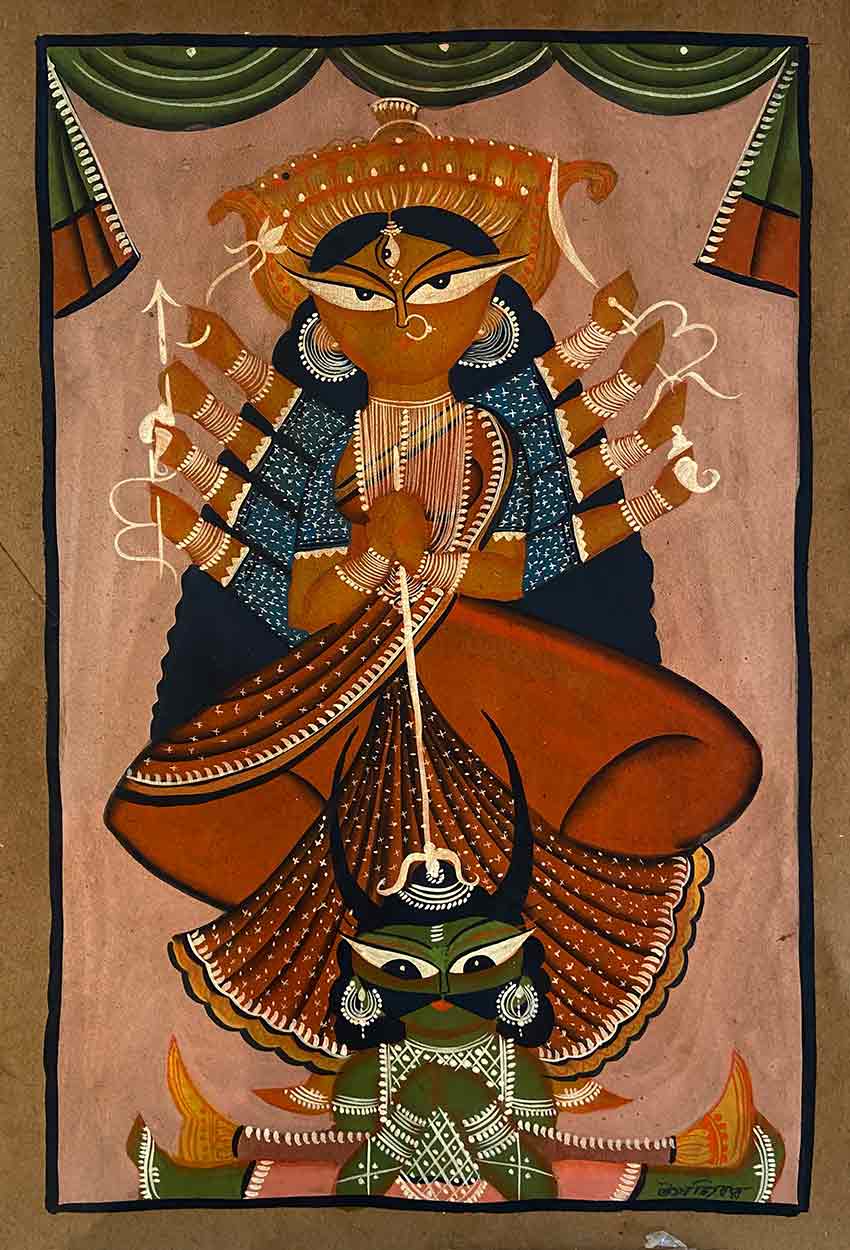

| Code | KAL476 |
For shipping with in India and out of India, the rates as per courier company charges will apply.
| Medium: | Water color on paper |
| Size: | 22x14.5 Inch |
| Location: | Delhi |
The Kalighat paintings developed in the 19th century during the Bengal presidency. The travelling scroll painters, or patuas, had been practicing the folk art of Pattachitra. The new manners and customs of the British settlers, the revivalist exercises of the Mughals and theatres, as well as the use of Sanskrit on stage, were absorbed by the rural artists who had migrated to Calcutta and developed into a popular urban genre. The period of Kalighat paintings coincides with the age of mechanical reproduction in the form of woodcuts, lithography, oleography, and printing. These developments had caused mass consumption of imagery in urban cities, and Kalighat was a response to it. The Kalighat painters interacted with the colonial paintings and began the use of water colours, shaded figures, and folio-sized mill-made papers. They absorbed the role of western theatre performances and the art schools, which developed the unique stylistic features of the Kalighat paintings as we know them today.
For shipping with in India and out of India, the rates as per courier company charges will apply.
 This artwork is accompanied by an Authenticity Certificate.
This artwork is accompanied by an Authenticity Certificate.
